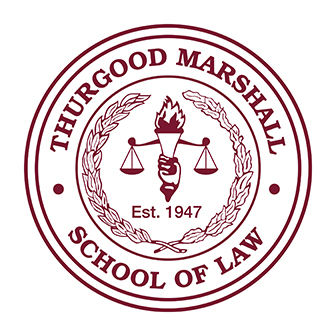Texas Southern's law school receives ABA public censure after sex discrimination allegations
Texas Southern University Thurgood Marshall School of Law has been publicly censured by the ABA’s Section of Legal Education and Admissions to the Bar after gender discrimination allegations from a female associate dean.
Also, the section council found that the law school was out of compliance with standards involving admissions, education programs, academic advising and equal opportunity.
The council released two separate decisions for its findings. One decision (PDF) involves Standard 104, which deals with law school questionnaires submitted to the ABA, and Standard 205(b), which addresses and equal opportunity for students, faculty and staff.
After a site visit to Thurgood Marshall School of Law at which complaints were raised about gender discrimination and sexual harassment, the ABA’s accreditation committee determined that the law school had not established it was in compliance with Standard 205(b). Fact finders were appointed to examine the law school and university’s policies related to gender discrimination and harassment and look at how the law school applied the policies in question.
Faith Joseph Jackson, Thurgood Marshall School of Law’s associate dean of internal affairs, in 2016 filed a U.S. District Court for the Southern District of Texas lawsuit (PDF) against the school alleging gender discrimination. She is also an associate professor who is pursuing a full professorship. Parties in the lawsuit recently agreed to mediation, her attorney told the ABA Journal.
The lawsuit claims that the ABA had flagged the law school in 2008. It also alleges that since 2012 she’d repeatedly complained to Dannye R. Holley, who resigned as law school dean in 2016, that she was not being paid as much as a male counterpart. Holley only acknowledged that two weeks before that ABA fact-finding team’s January 2016 visit, according to the complaint.
The June 2017 council decision states that based on the fact-finding team’s report and the law school’s response, the accreditation committee found the law school was not in compliance with Standard 205(b).
Thurgood Marshall School of Law appealed the committee’s decision. At a hearing, its interim dean acknowledged that a perception of gender bias exists at the law school. According to the council decision, he “was appointed subsequent to the particular actions that formed the basis for the site visit report.” The president of the university also attended the hearing, and stated that “gender discrimination would not be tolerated.”
James M. Douglas, a contracts professor, currently serves as the law school’s interim dean, according to its website. He was not available for comment when contacted by the ABA Journal. Holley, now a criminal law professor at the school, served as its dean from 2010 to 2016. He did not immediately respond to an ABA Journal interview request.
After the hearing, the council of the ABA’s Section of Legal Education and Admissions to the Bar found that Thurgood Marshall School of Law remains noncompliant with the standard addressing equal opportunity. The decision also states that the law school violated Standard 104, which is focused on information law schools provide the ABA.
The council finding directs the law school to develop a reliable plan addressing how it will try to have an environment free of gender discrimination and sexual harassment, what it will provide in training for faculty, staff and administration regarding gender discrimination and how that will be communicated and implemented.
According to Jackson’s lawsuit, Holley also refused to allow Jackson to reprimand employees in breach of university policies, kept her from participating in meetings with direct staffers and did not include her in emails regarding planning and preparation.
Jackson also alleges that the law school retaliated against her after discovering that she filed an Equal Employment and Opportunity Commission complaint against the school, denied her a full professorship despite a majority faculty vote in her favor, and applied different standards for her in the evaluation process.
Additionally, the lawsuit alleges that Holley encouraged staff to “engage in hostile office rants” regarding Jackson. One staff member allegedly called her the “HNIC,” which traditionally refers to the expression “Head N—- In Charge,” and others would speak of a “Team Against Faith Campaign.”
“Despite the complexity of bringing a discrimination case against a public institution, our client brought the suit to hopefully change the culture of gender bias in selecting its faculties and administrators,” Scott Khoa Bui, Jackson’s lawyer, told the ABA Journal in an email.
The council’s other decision (PDF) regarding Thurgood Marshall School of Law stems from an accreditation committee finding that the law school was out of compliance with accreditation standards 301(a), 309(b) and 501(b), which deal with program objectives, academic support and and admissions. The law school also appealed the finding, which the section council affirmed.
The law school must post both council decisions on its website, according to the documents, and pay a $15,000 fine to the ABA’s Section of Legal Education and Admissions to the Bar. It also must submit a reliable plan to come into compliance with the standards addressing program objectives, academic advising and admissions, and share with the accreditation committee data involving admissions for the Fall 2017 class. If something beside an LSAT score or GPA was used to support an admissions decision, that must be reported to the accreditation committee.
Also, the law school must submit admissions practices and policies adopted for recruiting the fall 2018 entering class.




